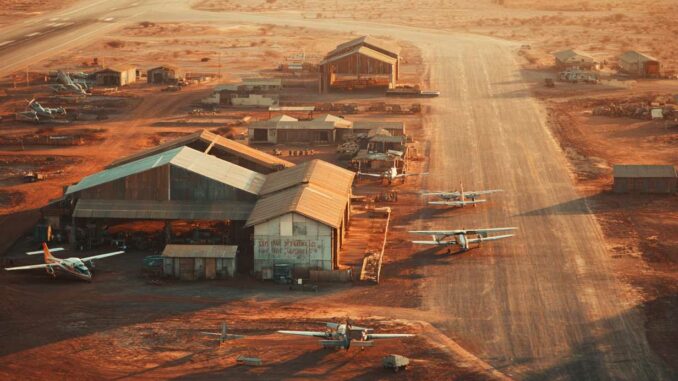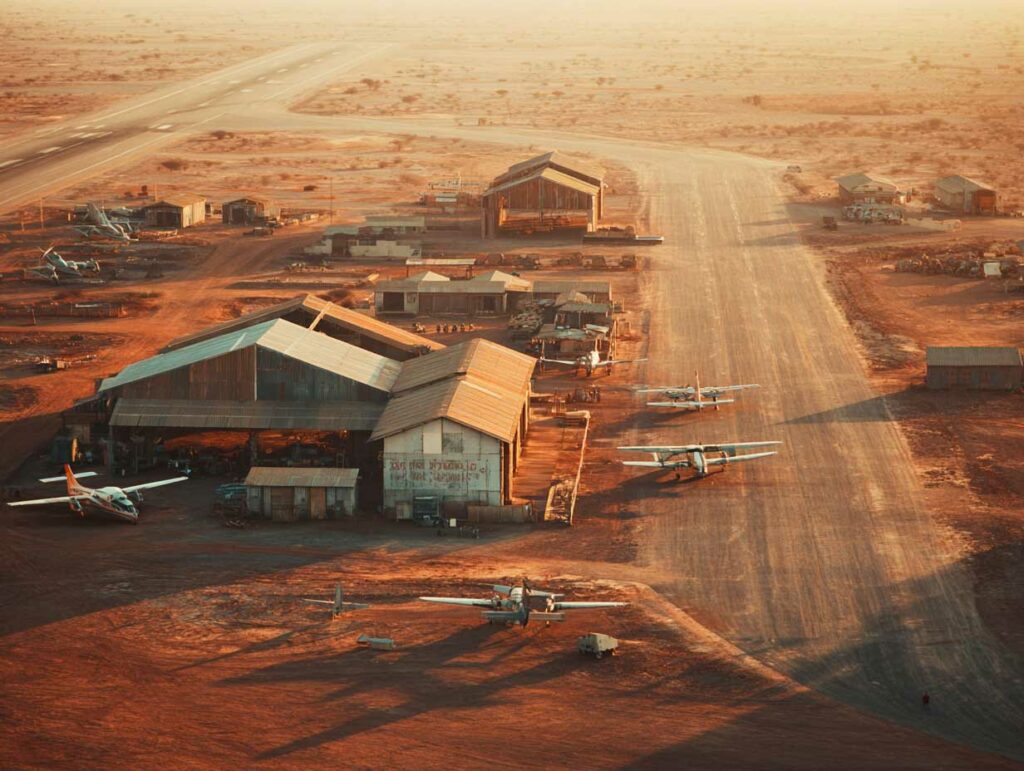
On August 6, 2025, the Sudanese army destroyed an Emirati aircraft in Nyala, killing 40 Colombian mercenaries. Analysis of geopolitical tensions and the conflict in Darfur.
On August 6, 2025, a significant event shook the Sudanese conflict: the Sudanese air force destroyed an Emirati cargo plane at Nyala airport in South Darfur, killing at least 40 Colombian mercenaries, according to Sudanese state television. This incident, which occurred in an area controlled by the Rapid Support Forces (RSF), highlights the intensification of hostilities between the regular army, led by General Abdel Fattah al-Burhane, and the paramilitaries commanded by Mohamed Hamdan Daglo, known as Hemetti. Since April 2023, this civil war has caused tens of thousands of deaths and displaced 13 million people, exacerbated by foreign interference. Accusations that the United Arab Emirates (UAE) is involved in supporting the RSF through arms and mercenary deliveries underscore the geopolitical complexities of a conflict where international interests are intertwined with local struggles, transforming Darfur into a theater of global influence.
The context of the Sudanese conflict
Sudan has been embroiled in civil war since April 15, 2023, pitting the regular army (SAF) against the Rapid Support Forces (RSF), a militia formed from the Janjaweed, infamous for its abuses during the Darfur genocide in the early 2000s. The conflict, which began in Khartoum, quickly spread to Darfur, a strategic region in the west of the country. The fighting has caused an unprecedented humanitarian crisis, with 25 million people facing acute food insecurity and 12 million displaced, according to the United Nations. Darfur, already scarred by decades of violence, has become a focal point due to its control by the FSR, which dominates four of the region’s five states.
The airport in Nyala, located in South Darfur, is a strategic asset. Controlled by the FSR, it serves as a logistics hub for the delivery of weapons, drones, and reinforcements, including foreign mercenaries. The Sudanese army, under al-Burhane’s command, has long accused the UAE of providing military support to the FSR, an allegation backed by UN expert reports and satellite images from Yale University’s Humanitarian Research Lab, revealing the presence of Chinese long-range drones in Nyala. The August 6, 2025 incident, in which an Emirati aircraft was destroyed, marks an escalation in the army’s efforts to cut off the FSR’s supply lines, while exposing the international ramifications of the conflict.
The Emirati aircraft incident
On August 6, 2025, the Sudanese Air Force targeted an Emirati cargo plane as it was landing at Nyala airport. According to an anonymous military source quoted by Agence France-Presse, the aircraft was bombed and completely destroyed, killing at least 40 Colombian mercenaries on board. Sudanese state television broadcast images of the strike, although these have not been independently verified. The plane, leased by the UAE, was also carrying military equipment, reinforcing accusations of Emirati support for the FSR.
Nyala airport is a strategic point for paramilitaries, used to transport weapons, evacuate the wounded, and coordinate operations. Repeated bombings of this airport by the army, notably in June 2025 when another cargo plane was targeted, demonstrate the intensity of efforts to neutralize this infrastructure. Colombian President Gustavo Petro responded by announcing an investigation to identify the exact number of Colombian victims and organize the repatriation of the bodies, implicitly confirming the presence of his nationals in the conflict.
Colombian mercenaries, often former soldiers or guerrillas, are recruited by private security companies based in the UAE. Their presence in Darfur, reported as early as December 2024 by UN experts, is estimated at more than 80 fighters, according to the pro-army coalition Joint Forces. These mercenaries provide expertise in artillery coordination and drone operations, strengthening the FSR’s capabilities in key areas such as El-Fasher, the last regional capital under army control.

Geopolitical implications
The incident highlights foreign interference in the Sudanese conflict, with the UAE at the center of the accusations. The Sudanese government, aligned with the army, claims to have documents proving the financing and recruitment of Colombian mercenaries by Abu Dhabi. These allegations are supported by previous reports, including one by Amnesty International in July 2024, which documents arms delivery routes from the UAE via Chad and Libya. Amdjarass airport in eastern Chad is believed to be a key transit point for Emirati deliveries.
The UAE, however, categorically denies these accusations. On August 7, 2025, a UAE official described the Sudanese allegations as false and a disinformation campaign, while emphasizing the lack of concrete evidence. Despite these denials, satellite images and UN reports confirm the presence of Chinese drones in Nyala, reinforcing suspicions of Emirati support for the FSR. This involvement is part of a broader context in which the UAE is seeking to expand its influence in Africa, notably through alliances with actors such as Khalifa Haftar in Libya, who is also accused of facilitating the delivery of weapons to the FSR.
Other powers, such as Iran, Russia, and Turkey, are also involved in the conflict, fueling a proxy war. For example, South Sudanese and Central African fighters, numbering around 5,000 on the FSR side, are participating in the fighting, while Russia, via the Wagner Group, has been linked to arms deliveries to the paramilitaries. These international dynamics complicate the resolution of the conflict and exacerbate the humanitarian crisis, with attacks on civilians and blockades of humanitarian aid reported in El Fasher and elsewhere.
Humanitarian and strategic consequences
The conflict in Darfur has devastating repercussions. The Masalit massacres, described as genocide by the United States in January 2025, have caused thousands of deaths. The UN reports that 14 civilians were killed in August 2025 during an FSR attack on the Abu Shouk camp for displaced persons. The region, already weakened by decades of violence, is on the brink of collapse, with a cholera epidemic affecting two-thirds of the country and causing more than 1,700 deaths in May 2025.
The Emirati plane incident could intensify diplomatic tensions between Sudan and the UAE. Khartoum already filed a complaint against Abu Dhabi at the International Court of Justice in April 2025, accusing the UAE of complicity in the FSR’s abuses. Although the complaint was dismissed for lack of jurisdiction, it illustrates the growing hostility between the two countries. Strategically, the destruction of the aircraft could weaken the FSR by disrupting its supplies, but it also risks provoking a military escalation, with potential retaliatory strikes.
For the Sudanese army, this incident is a symbolic victory, demonstrating its ability to strike strategic targets. However, the FSR’s dependence on external support, particularly via bases in Libya and Chad, suggests that the long-term impact could be limited. Colombian mercenaries, with their expertise, remain a key asset for the paramilitaries, and their replacement could be swift, given the UAE’s well-established recruitment networks.
War Wings Daily is an independant magazine.